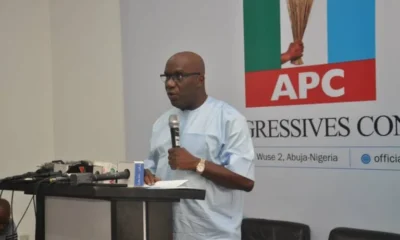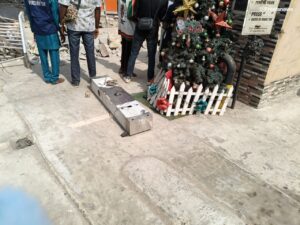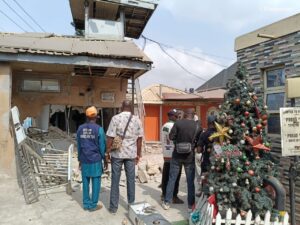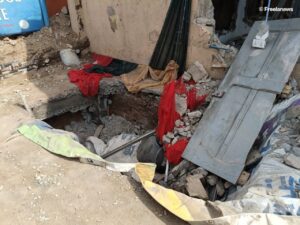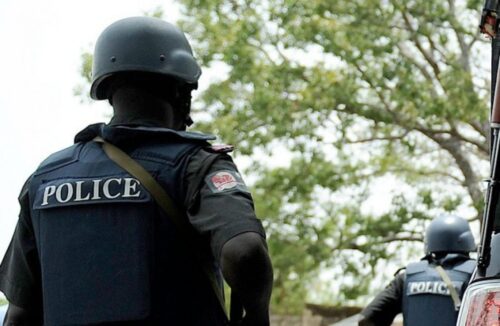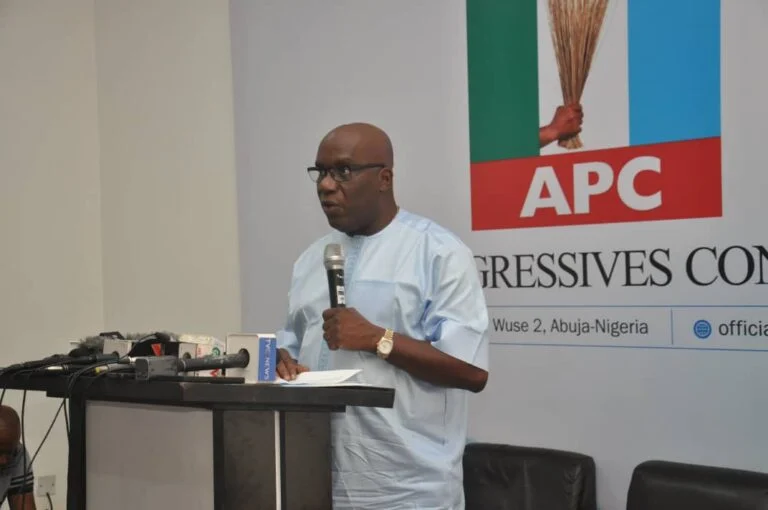The Nigerian National Petroleum Company Limited (NNPCL) and fuel marketers under the aegis of the Independent Petroleum Marketers Association of Nigeria, on Tuesday, clashed again over the removal of subsidy on petrol.
This occurred against the backdrop of the naira’s decline versus the US dollar in both the official Investors and Exporters Window and the parallel market.
The local currency finished at 998/dollar on Tuesday in the official market, while it traded at 1,225/dollar in the black market.
On the back of the falling naira rate, economists and oil marketers said PMS subsidy was increasing in recent times, but the NNPC quickly countered these positions and declared that it was recovering its full cost on the importation of Premium Motor Spirit, popularly called petrol.
The Chief Executive Officer, of Financial Derivatives Company, Bismarck Rewane, had during a live television programme on ChannelsTV on Sunday, explained that fuel subsidy was not removed but reduced.
Similarly, oil marketers told our correspondent on Tuesday that subsidy on petrol was increasing considering the crash of the naira against the United States dollar and the cost of crude oil, stressing that PMS should sell for N1,200/litre in a free market.
Petrol, which is solely imported into Nigeria by the NNPCL, currently sells for between N617/litre to N660/litre, depending on the location of purchase in Nigeria.
Also speaking on the matter, the Chief Executive Officer, Centre for the Promotion of Private Enterprise, Dr Muda Yusuf, said there was partial subsidy on petrol, but noted that the commodity was subsidised by the government for political, social and economic reasons.
But when contacted, the Chief Corporate Communications Officer, NNPCL, Olufemi Soneye, described the positions of economists and marketers as assumptions, and insisted that the Federal Government had stopped subsidy on petrol.
President Bola Tinubu had during his inaugural speech on May 29, 2023, declared that subsidy on petrol was gone, a declaration that was effectively implemented the next day by NNPCL.
Before Tinubu’s declaration, the pump price of petrol was below N190/litre, but it jumped to over N500/litre after the President’s statement, and moved up again to over N600/litre a few weeks later.
Asked to state if the NNPCL, being Nigeria’s sole importer of petrol, subsidising the commodity as posited by dealers and experts, the oil firm’s CCCO replied, “We prioritise our time on substantive matters rather than responding to assumptions.
“At NNPC Ltd, we prioritise national development through energy security and sustainable growth. We reiterate that the Nigerian government does not pay subsidy on fuel; we recover full costs from our imported products.
“As a global energy company, our focus remains on fostering a vibrant and energy-secure Nigeria.”
Rewane had earlier explained that subsidy on petrol was reduced and not removed, while featuring on a live television programme on Sunday evening, as he further highlighted the effects of the reduction in fuel subsidy and how it was affecting salary earners in Nigeria.
He said, “At the inauguration, it was said that (fuel) subsidy was gone but subsidy was actually reduced.”
Buttressing his position, he explained, “There is the convergence of exchange rates and reducing the windows into one. The consequence of that is that money has been transferred from consumers to the government.
“Subsidies are reversed taxes; if you reduce them, you increase the people’s taxes and reduce their income. What has happened is that government revenue has increased by 44 per cent between May and June (2023). Money has been transferred to the government but what is the government doing with it?
“The consumers, on the other hand, had a minimum wage, which in dollar terms was $40 in 2002. In 2019, it was about $70, but it has now been reduced to $24.”
- Marketers project N1,200/litre
The National Public Relations Officer, Independent Petroleum Marketers Association of Nigeria, Chief Ukadike Chinedu, stated that subsidy on petrol was rising and that the cost of the commodity should be around N1,200/litre in a free market.
“To be pragmatic in this analysis let’s consider the cost of petrol today in the United States. For premium petrol, it is $2.99, while super petrol sells for $3.15 or $3.10 depending on the part of that country where you are making the purchase.
“Now, $3 in Nigeria is over N3,000, because a dollar in the parallel market is over N1,000. You can also see the cost of diesel, that is over N1,000/litre, and it is important to state that petrol is usually higher in price than diesel in a free market.
“So if you consider the cost of diesel, dollar and other international factors, the price of petrol in Nigeria should be around N1,200/litre, but the government is subsidising it, which to an extent is understandable,” he stated.
Ukadike noted that he had earlier explained that the government was implementing quasi-subsidy, and by this it means that “the Federal Government, instead of taking out the subsidy by 100 per cent, decides to take out about 50 per cent.”
The IPMAN official, however, expressed optimism again that the cost of refined petroleum products would reduce as soon as the Port Harcourt and Dangote refineries start producing the commodities.
“I also believe that there will be a reduction in the prices of petroleum products this year when you consider what the government is currently doing. The coming onboard of the Port Harcourt refinery and the supply of crude to Dangote refinery are good developments in the sector.
“Their operations will help stabilise the price of PMS and other petroleum products in Nigeria, because it will definitely cut down the importation of products,” Ukadike stated.
The Centre for the Promotion of Private Enterprise CEO said subsidy was being retained partially because of its economic, social and political implications.
Yusuf said, “To protect the citizens from further hardship is the reason why the government seems to have applied the brakes on subsidy removal. We are all witnesses to the pain and hardship that citizens are going through.
“So when you are adopting some of these policies, especially these liberal economic policies, it comes to a point where you have to moderate your position for social reasons.
“Just as the World Bank said, if we want to leave the price fully to market forces and the liberal economic policies, the fuel price will be above N800/litre. Can any government that is sensitive to the feelings of its citizens allow that to happen?
“Even if economically that is the way to go, there must always be a human face to economics. So what the government has done is to moderate the reform, and that is why I think the government has insisted that the NNPC should still hold the price at the current level.”
Yusuf noted that the government must balance the gains and side effects of subsidy, stressing that economic hardship may worsen should subsidy be removed 100 percent.
“All of us who were saying that they should remove the subsidy, we can see that they have partially removed it now, but look at the consequences. Economically it will sound good, but socially and politically it is very costly.
“So those in government need to balance all those considerations. They need to balance economic, political and social considerations. That is why we find ourselves in a situation where we have partial subsidies, both in petrol and electricity,” he stated.
The World Bank had stated in December that subsidy on petrol was still being implemented by the Federal Government, as it insisted that the cost of PMS should not be less than N750/litre if there was no subsidy.
The naira closed at N988.46/$ on the first day of official trading on the Investors and Exporters Window on Tuesday.
This is an 8.97 percent decline from the N907.11/$ it closed trading on Friday (the last day of official trading for 2023) according to data from the FMDQ Securities Exchange. This continues a worrying trend for the naira which was one of the worst performing currencies of 2023.
According to Bloomberg, the naira had one of its worst years in 2023, a title that 2024 might usurp. It noted that the national currency lost about 55 percent of its value as of Thursday 28, 2023.
Based on Kyle Chapman, FX markets analyst at London-based Ballinger & Co, the naira was the third worst-performing global currency in 2023 due to a backlog of unsettled forwards, undelivered promises of dollar inflows, and a two-decade peak in inflation.
Chapman said, “The naira’s downward momentum is likely to continue through much of 2024, and its ultimate trajectory will depend on whether the CBN’s rhetoric transforms into concrete policy moves that drive up the flow of US dollars into Nigeria and shore up trust in the official market.
“If the CBN’s promised measures materialise and Tinubu’s government enacts structural changes to increase oil production or to drive foreign investment, there is plenty of opportunity for the naira to lift from its record lows. But a quick fix is unlikely, and further depreciation will come to counteract supply and demand imbalances.”
In its December Nigeria Development Update, the World Bank noted that naira had depreciated against the US dollar by 41 percent in the official market and by 30 percent in the parallel market. It noted that the naira needs increased volume to stabilise in the official market.
It said, “Further monetary policy tightening is expected to help underpin the value of the naira. However, there is also a need to increase FX supply in the market. Facilitating FX flows, especially from all exports, through the NAFEM can help provide additional volumes in the official window that can help provide stability.
“In addition, clarity on the CBN’s net reserve position, and on the CBN’s continued progress in clearing the FX backlog, would also strengthen market confidence.”
Meanwhile, the Nigerian National Petroleum Company Limited, on Tuesday, said a total of 112 cases of crude oil theft were recorded in the Niger Delta in one week.
It said the oil theft incidents occurred between December 23, 2023 and December 29, 2023, adding that in the past week, 42 illegal refineries were discovered in several locations in the oil rich region.
It outlined the locations to include Konsho and Tebidaba in Bayelsa State; Obokofia in Imo State; as well as Ogidigben, Mereje and Obodo Omadina, in Delta state
The oil firm disclosed this in a documentary posted on its official X handle, adding that the “illegal refineries in Umuire, Abia State, and Upata in Rivers State, were also discovered and destroyed.”
It further stated that 14 illegal connections were uncovered in several parts of the Niger Delta, as a tunnel covering an illegal connection was also uncovered in Owaza, Abia State, while 10 cases of vandalism were discovered.
In the two minutes and 44 seconds documentary, the company stated that, “Illegal storage sites were discovered in Ebocha and Ton Kiri in Rivers State where oil pits were found.
“In Ogbia, Bayelsa State, sacks of crude oil were discovered. More illegal storage sites were uncovered in Urhonigbe, in Edo State; Ekuku-Agbor and Bomadi in Delta State.”
According to the firm, 22 wooden boats conveying stolen crude were discovered in Okrika and Tombia in Rivers State as well as Emereje, Delta State.
It stated that during an operation, 11 vehicle arrests were made in Delta State, as eight of these (oil theft) incidents took place in the deep water, 46 in the eastern region, 32 in the central region, while 26 took place in the western region.
“Between the 23rd and 26th of December, 2023, 18 suspects were arrested,” the national oil company stated, adding that it would not back down in the war against crude oil theft.
Nigeria loses billions of naira to oil theft and finds it tough to meet the production quota approved for the country by the Organisation of Petroleum Exporting Countries, due to the menace of oil thieves.
Credit: The Punch

 BIG STORY2 days ago
BIG STORY2 days ago
 BIG STORY4 days ago
BIG STORY4 days ago
 BIG STORY4 days ago
BIG STORY4 days ago
 BIG STORY3 days ago
BIG STORY3 days ago
 BIG STORY2 days ago
BIG STORY2 days ago
 BIG STORY2 days ago
BIG STORY2 days ago
 BIG STORY3 days ago
BIG STORY3 days ago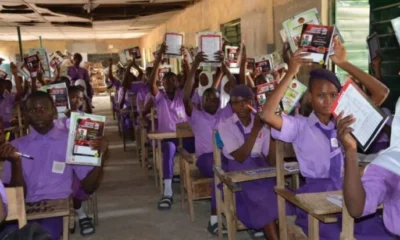
 BIG STORY3 days ago
BIG STORY3 days ago









